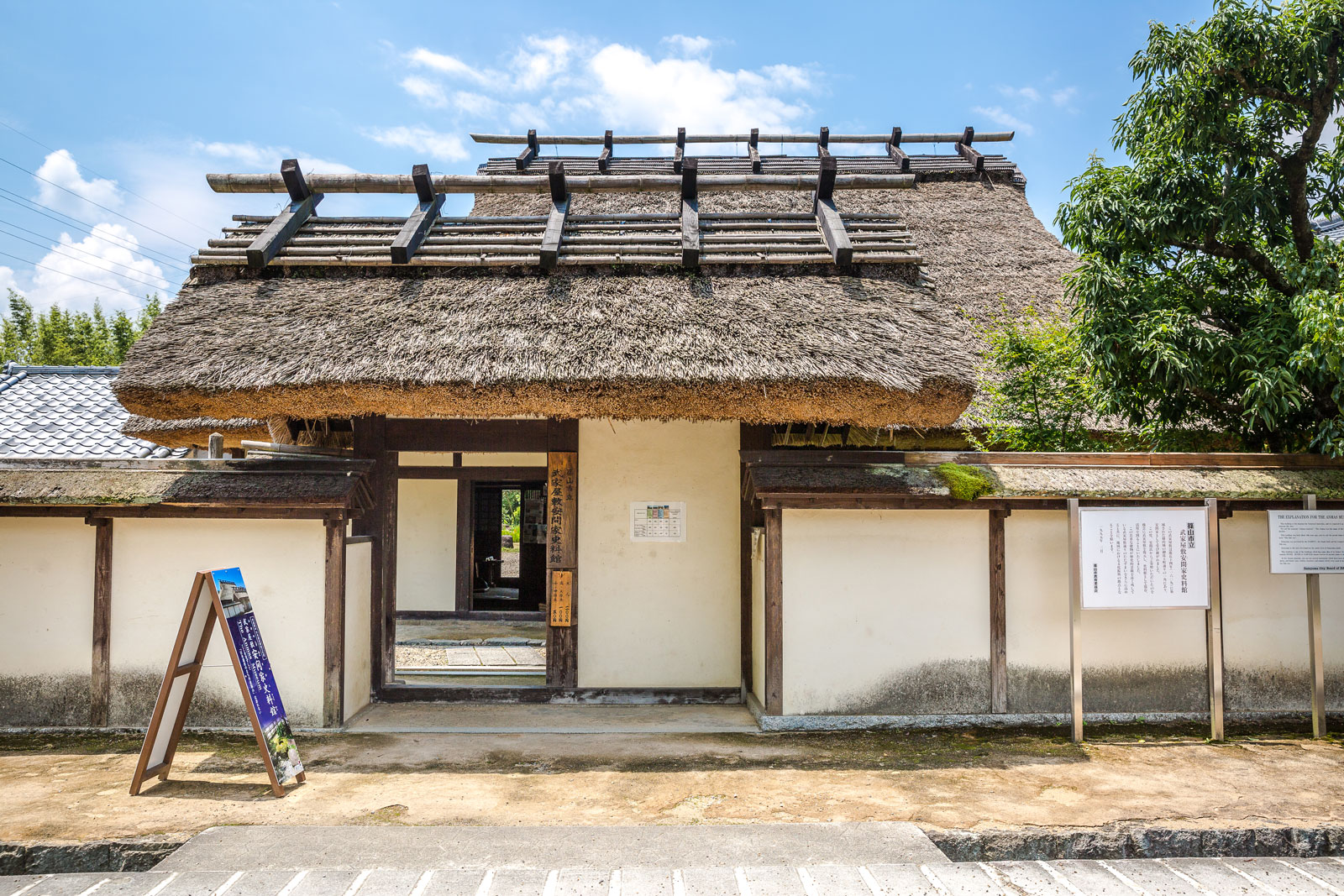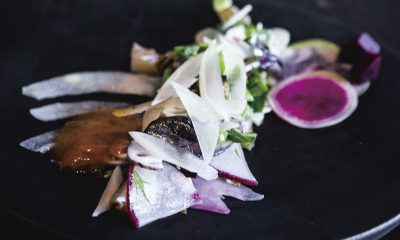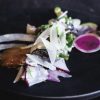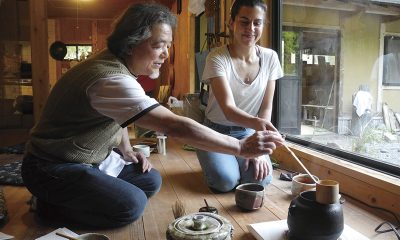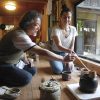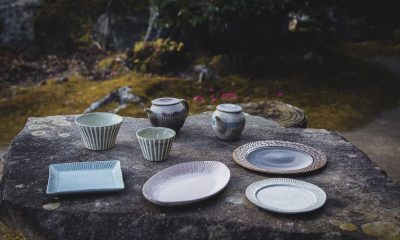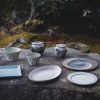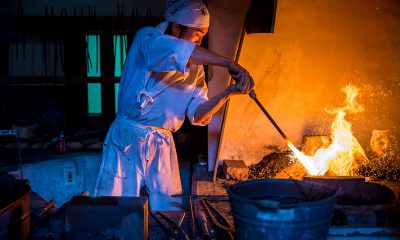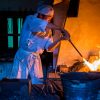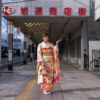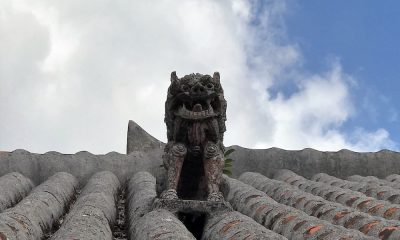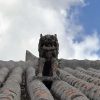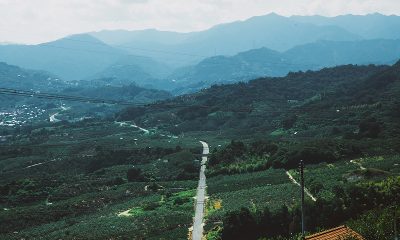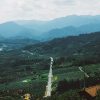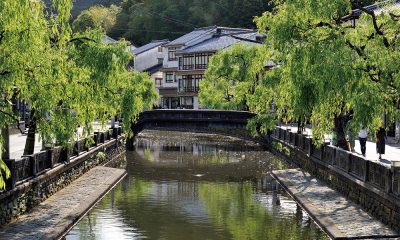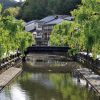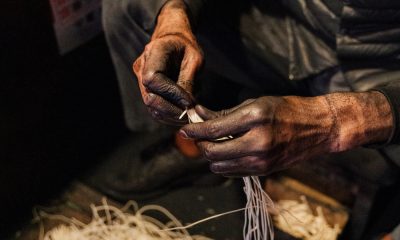Travel
The Treasures of Tamba Sasayama
Discover the delights of one of Hyogo’s hidden gems.
While so much of the action in Japan is concentrated in its big cities, Japanese rural towns are in some senses making a comeback. In districts like Hyogo’s Tamba Sasayama, residents are working together with the local government to encourage young people to move to the area—or to return there if it’s where they grew up—to start their businesses and families. Don’t be surprised to drive down a quiet, seemingly sleepy street only to find a renovated kominka (traditional wooden house) converted into a hip craft beer brewpub, or a gourmet coffee house, or an art gallery and gift shop with a holistic therapy salon sitting atop.
Businesses like these, started by budding entrepreneurs looking to strengthen the local community and provide value to travelers and passersby, can be found in several pockets of Tamba Sasayama. This region provides a way of life that has eluded many young Japanese—fresh air, nature on the doorstep, stillness, silence, plenty of time for contemplation. Above all, a sense of community and of knowing your neighbors. All of this is probably what makes it such a wonderful place to visit.
The city, about a 60-minute train ride northwest of Osaka, was created in 1999 through the merger of the former town of Sasayama as well as three other villages—Konda, Nishiki, and Tannan. In November 2018, the city held a successful referendum to change its name to Tamba Sasayama, referencing the historical Tamba Province that the city has been a part of. Best explored with a rental car (although possible using public trains and busses), this region makes a welcome retreat away from the throngs of tourists packing the popular sightseeing spots in destinations like Kyoto. A place where you feel like you can experience the ‘real’ Japan, follow our itinerary for a perfect weekend in Tamba Sasayama.
Day 1
Visit Sasayama Castle
The first stop for anyone with an interest in Japanese history is Sasayama Castle, or rather the remains of it. While the outer walls and moats are more or less intact, as with many Japanese castles these days, the remaining central structure—the Oshoin—is, in fact, a faithfully reconstructed copy. The castle was hurriedly built in 1609 as a base from which to launch an attack on Osaka by none other than Tokugawa Ieyasu, who was more concerned with function over aesthetics, which is why a central tower for the castle was never constructed.
Today, the Oshoin serves as a museum where you can peruse artifacts in a series of tatami (straw mat) rooms. For the full historical experience, you can even try on a set of samurai armor.
Roam the Old Samurai Residence Quarter
Just a short drive or 10-minute walk from the castle, visit Sasayama’s charming old samurai residence quarter where many traditional thatched buildings have been painstakingly preserved. Here, the Anma-Family Samurai Residence Museum, a 200-year-old former samurai home, has a superb collection of Edo-period tools and home furnishings.
Stroll Down Nikaimachi Shopping Street
Back in town, a wander along the Nikaimachi shopping street will take you past restaurants serving local delicacies like botan nabe (wild boar hotpot) and Sasayama beef, and street-food vendors peddling roasted chestnuts in the cold months and kuromame (black bean) snacks year-round. The Tamba Sasayama History Museum is worth checking out to learn more about the area and its past.
Peruse Pottery Art at Tamba Traditional Art Craft Park
For genuine pottery lovers, it’s well worth the effort to get out to Tamba Traditional Craft Park (Tachikui Sue-no-sato), a 20-minute drive outside the city. Set in the verdant, mountainous Tamba countryside, the park features a special nobori gama inclined kiln, which attracts artisans from all over the world. For a chance to make your own Tamba-yaki ceramics, book yourself into a pottery workshop.
On October 19th and 20th, visitors can browse and buy exquisite local ceramics and autumn foods during the Tamba Pottery Festival.
Eat Local Soba Noodles
Slurp down a hearty bowl of yamanoimo tsuke tororo soba noodles served in the local style with a mashed yam and egg topping at the restaurant Hanakoushi in the Kawaramachi district.
Climb the Stairs to Ojiyama Makekirai Inari
According to legend, the rather unusual name of this shrine—Makekirai Inari, or the “hate to lose shrine”—was constructed in honor of a group of foxes who, sometime in the first half of the 19th century, took the form of sumo wrestlers and participated in an important sumo competition in Tokyo to please the lord of Sasayama. (Foxes are regarded as a tutelary animal of Shinto shrines). Sasayama’s feudal lord at the time was known for his hatred of losing and was very pleased when these mysterious wrestlers won the competition on behalf of his domain, which had not performed well in the sumo previously. Nowadays, this shrine is said to be good luck for anyone who walks up through the tunnel of vermilion torii gates and prays for success in sports competitions, passing exams, business, and job-hunting. There is a beautiful view from the top next to the shrine.
Stay a Night in the Post Town of Fukusumi
About a 20-minute drive from Kawaramachi, the Fukusumi district connected Sasayama and Kyoto in the Edo period (1603–1868) and was a popular overnight stop on this historic route. The old townscape still retains its Edo-period atmosphere from when its many accommodations opened their doors to travelers. There are several renovated and well-maintained traditional wooden houses that provide historic overnight lodgings for visitors to Fukusumi. Mori no fudo is one such house built around 200 years ago that rents to groups of up to five people for around ¥15,000 per night. Bookings can be made at morinofood.com
Day 2
Start the Morning with Freshly Ground Coffee
Wander over to the spacious cafe and roasting house Magnum Coffee and start your day with the best cup of joe in Tamba Sasayama.
Get a Relaxing Herbal Treatment
Head to Holistic Mugwort and meet your natural therapy specialist 32-year-old Maya Adachi who uses plants and herbs grown in the Tamba Sasayama region to provide relief from and healing of various skin and body ailments. She is an expert in massage and body tapping techniques as well as a variety of herbal treatments. While you wait for your appointment, shop for rare souvenirs in the quaint gallery and gift shop downstairs, Littleleaf, run by Adachi’s husband.
Rent a Bicycle and Explore the Region on Two Wheels
Despite being flanked by mountains, the Tamba Sasayama town areas are relatively flat, making the roads perfect for cycling. Drop into the Green Cross Road bicycle shop and cafe and choose from the vast array of bikes on the advice of Daisuke Murakami, a huge cycling enthusiast who has even assisted the Japan national cycling team during past competitions. At Green Cross Road, road bikes, mountain bikes, and regular town riding bikes are available for rent, plus there are maintenance, repair, and customization options if you happen to turn up with your own set of wheels. Ask Daisuke for his recommendations on the best cycling routes around the district.
Wind Down with a Craft Beer
After a long afternoon of biking, head over to Tamba Sasayama Tabijino Brewery’s newly opened rustic craft beer brewpub for a glass of their pilsner, pale ale, weizen, or stout.
Getting There
From Osaka, take a rapid train on the JR Fukuchiyama/Takarazuka line to Sasayamaguchi Station. Stop by the Tamba Sasayama Tourist Station to pick up handy maps and leaflets for exploring the region. From the station, take the Shinki bus for 15 mins and get off at the Nikaimachi stop. From there you can enjoy Sasayama on foot, beginning with the castle.
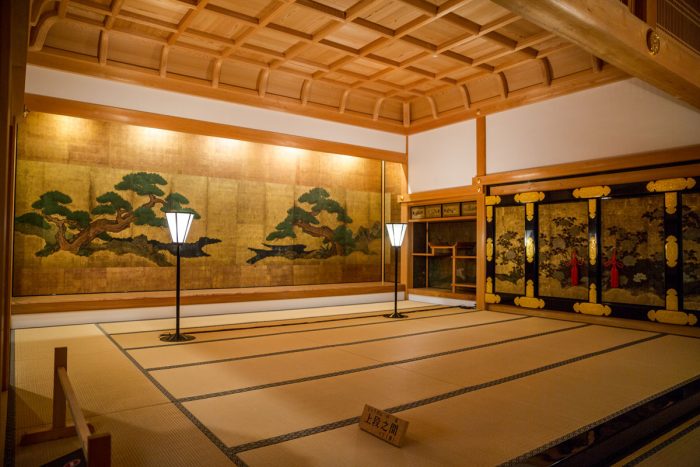
Exquisite painted screens line tatami mat rooms at the Oshoin in Sasayama Castle. Photo:Jason Haidar 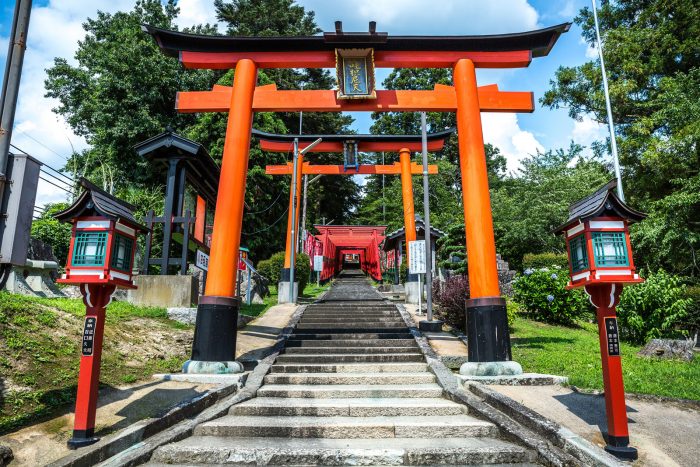
The striking torii gates of Makekirai Inari shrine. Photo:Jason Haidar 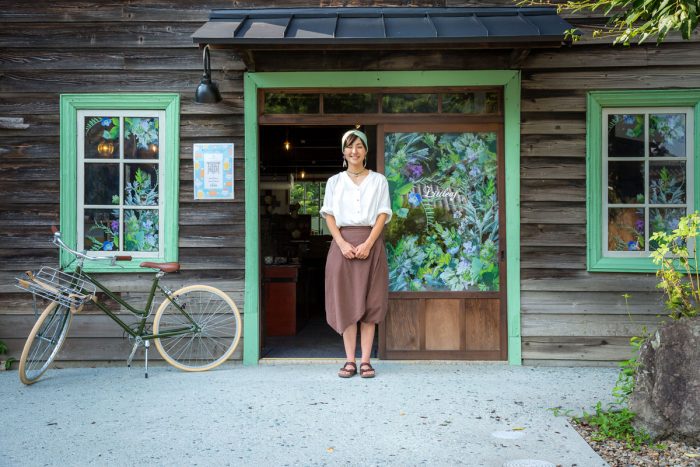
Herbal relaxation at Holistic Mugwort. Photo:Jason Haidar 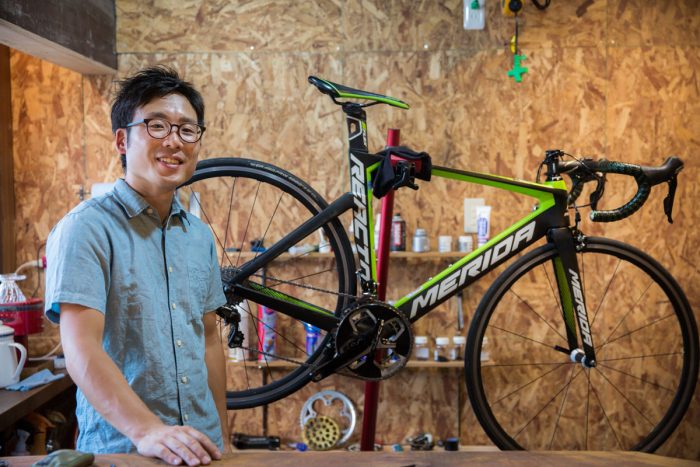
Rent a bike from Green Cross Road and explore on two wheels. Photo:Jason Haidar
Find it…
Sasayama Castle 2-3 Kitashinmachi; withsasayama.jp • Anma-Family Samurai Residence Museum 95 Nishi-shinmachi; withsasayama.jp/REKIBUN/anma_top.htm • Tamba Sasayama City Historical Museum 53 Gofukumachi; withsasayama.jp • Tamba Traditional Craft Park 3 Kamitachikui Kondacho; tanbayaki.com • Hanakoushi 160 Kawaramachi; hanakoushi.jugem.jp • Makekirai Inari 92 Kawaramachi; makekirai.com • Mori no fudo 194-1 Kawara; morinofood.com • Magnum Coffee 317 Fukusumi; magnum-millpour.com • Holistic Mugwort 379-2 Fukusumi; tanbasasayama.com/2019/03/20/holistic-mugwort • Green Cross Road 372 Fukusumi; high-lander2.com • Tabijino Brewery 385 Fukusumi; t-brewery.jp


